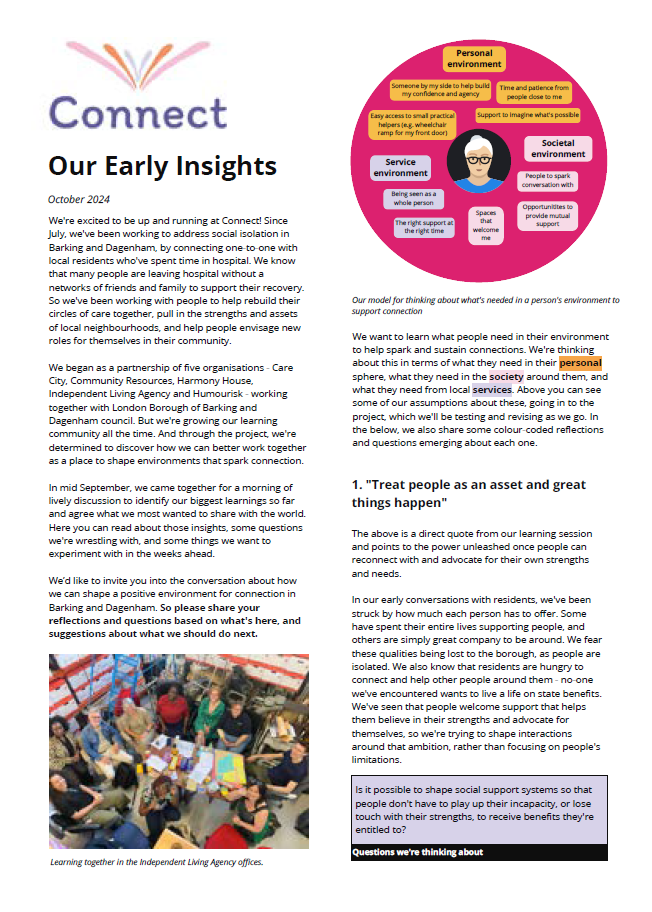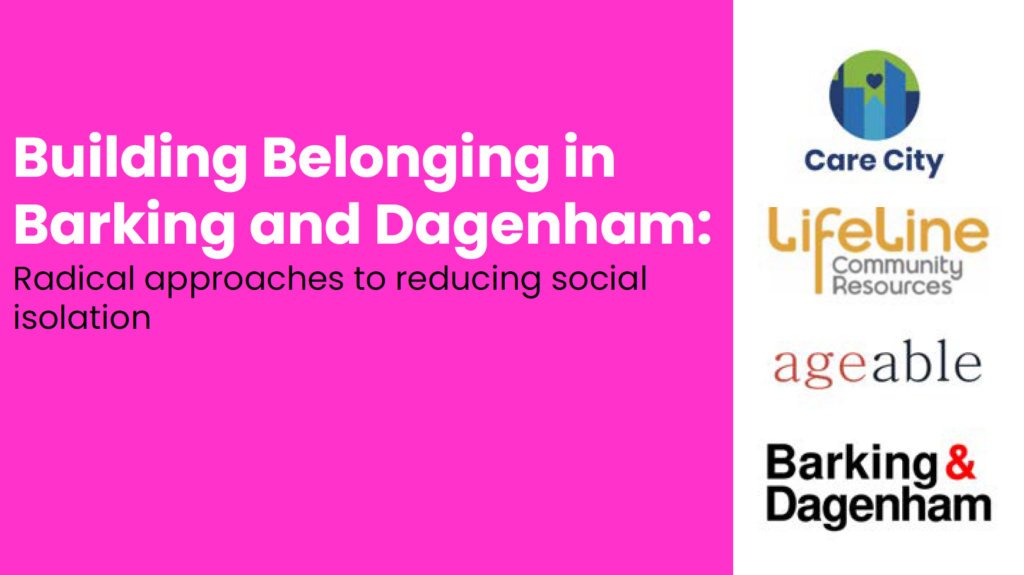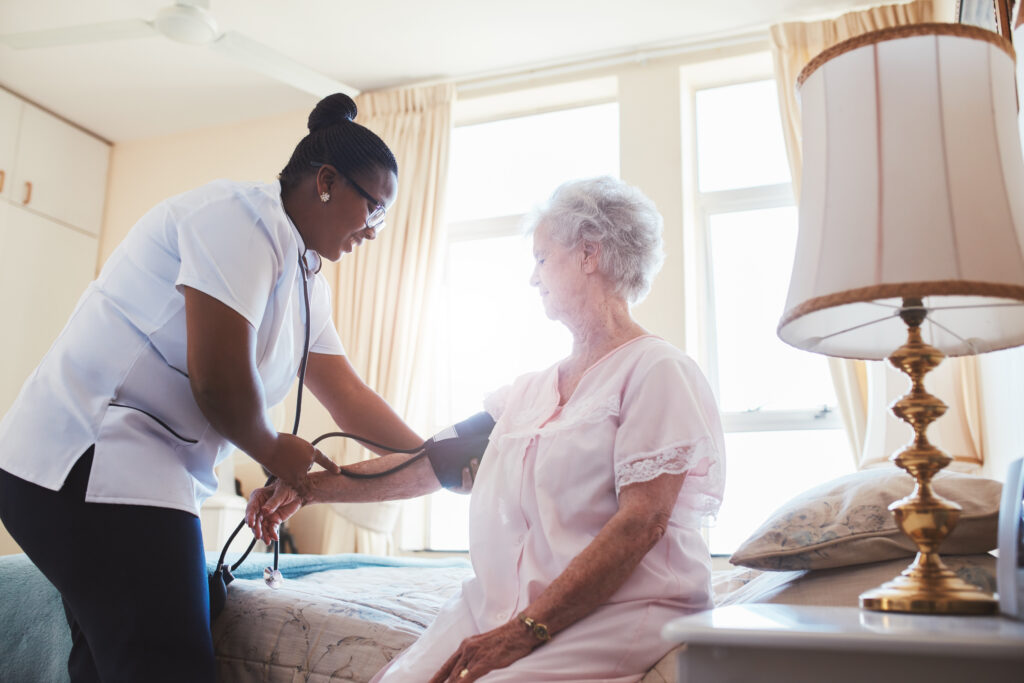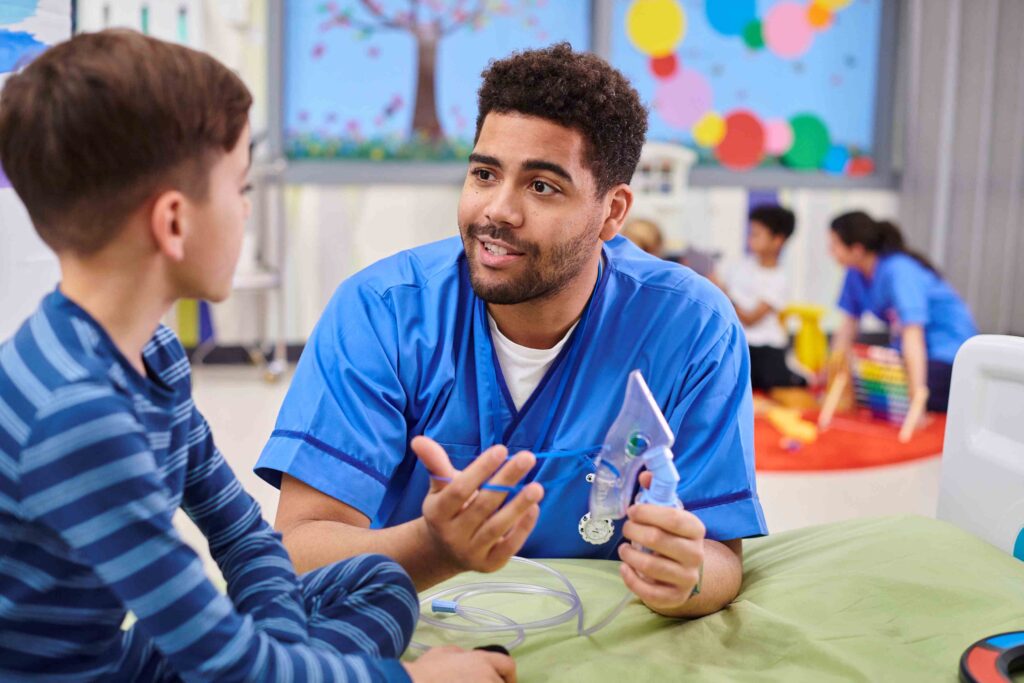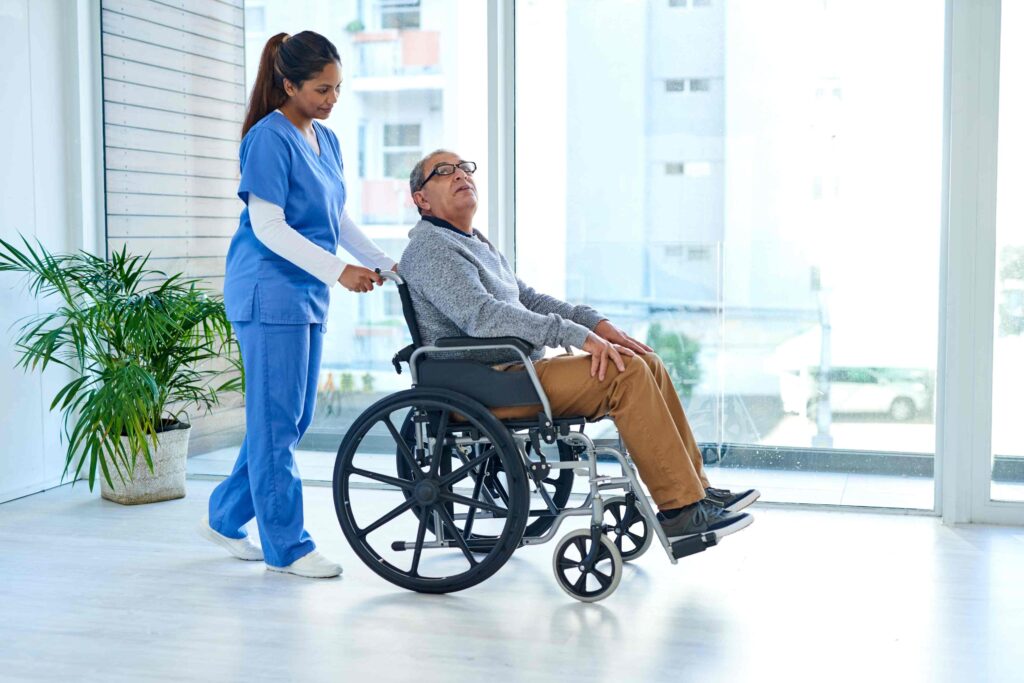Igniting Community Power to Combat Social Isolation
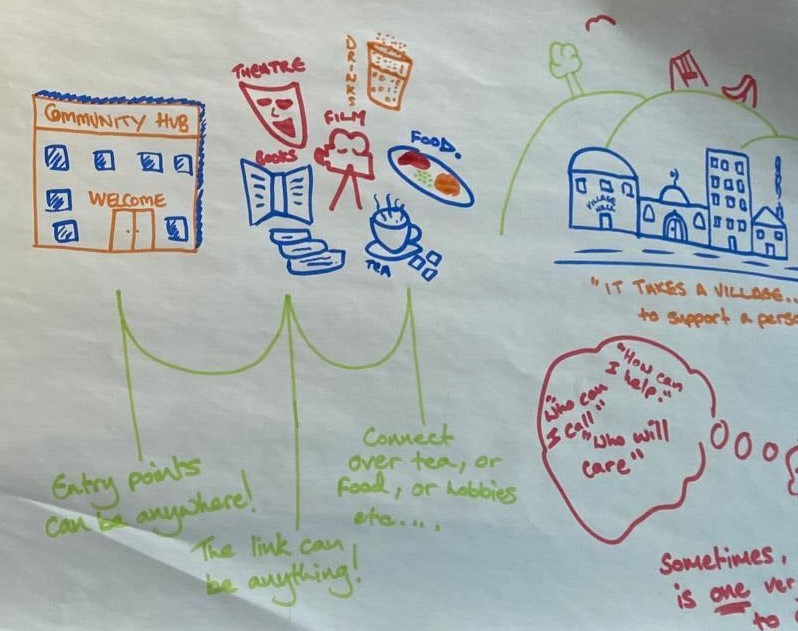
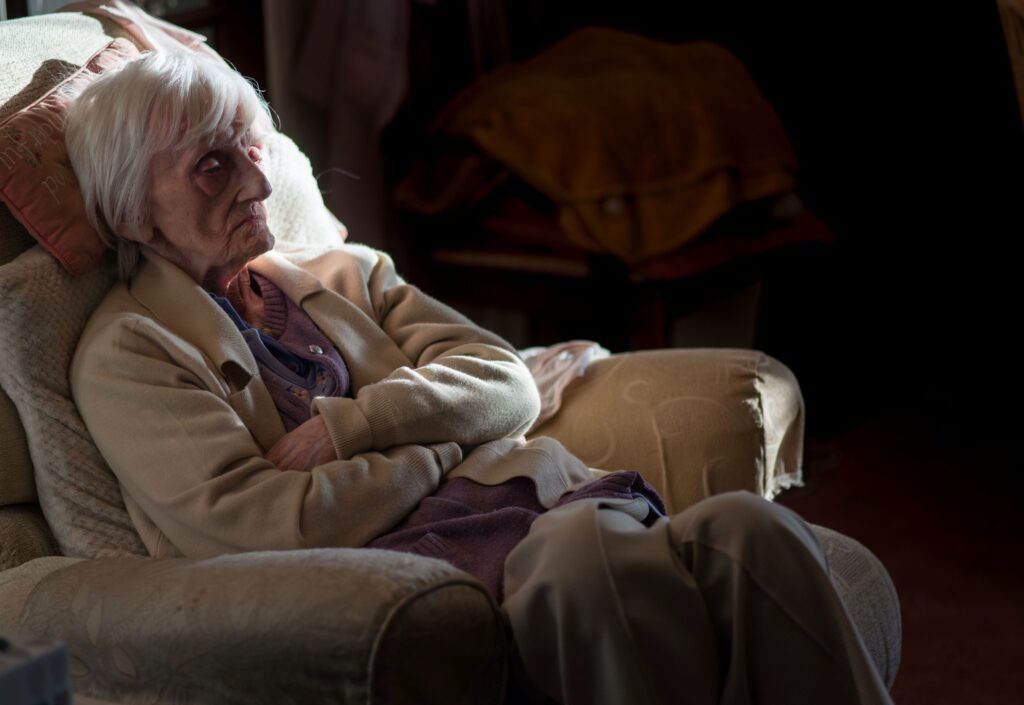
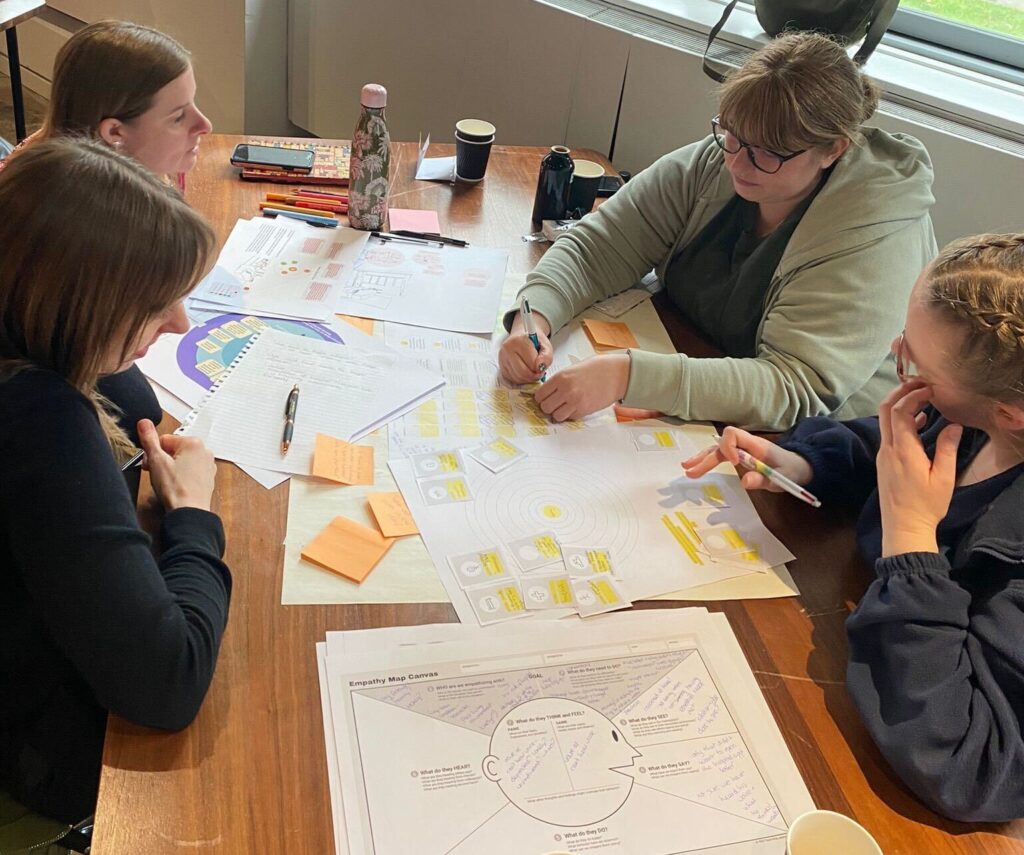
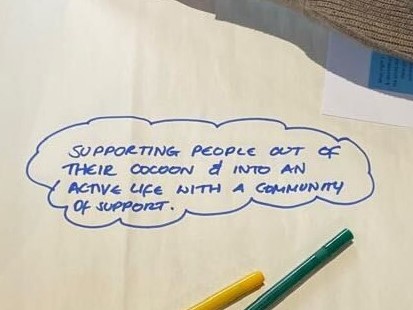
Prevention is better than cure. Collaborating with residents of Barking & Dagenham to build spaces for friendship and care.
The challenge
Commissioned by London Borough of Barking and Dagenham, using joint health and local government grant funding, and in collaboration with the BD_Collective, supported by Ageable CIC, we are working to address one of the Borough’s biggest challenges: helping people who are feeling isolated to find their way to building new friendships. Our borough has the second highest rates of loneliness in London – we are building on work that the community and council have done in recent years to understand why and to design something different.
Residents of Barking and Dagenham are the second most likely to feel lonely ‘often or always’ (11.24%) in London. This is compared with a London average of 7.31% and England average of 7.26%
We know that when people come out of hospital their recovery – physical and mental – can be much more difficult if they don’t have a strong network of family and friends around them. From conversations with people who have been in this isolated place we know that their dreams and aspirations are quite modest – to have someone to go swimming with, to go with them to the seaside, to share a cuppa and a chat. We believe that we should, as a community, be able to help people meet these dreams and create the space for friendships to thrive.
I need transport to help me get to clubs and keep getting let down. We do get a taxi sometimes but the problem is that I’m not stable on my feet – I need someone to help me get out and about.
What are we doing?
We have co-created, and are prototyping, a deeply personalised approach that organises the strengths of the B&D community so a person can access them easily to support their recovery.
We are not designing a new service. We are supporting people to draw on the support they need to build confidence, health and relationships, and to see a different role for themselves, through knitting together and building the strengths of our place and people. The approach that we’ve designed with our community is three connected learning systems, all centred around a person and the building of good relationships.
What we’ve heard is that the people have a lot of complexity in their lives, which means they often get passed between systems & services which are designed to respond with a ‘whole person’ approach.
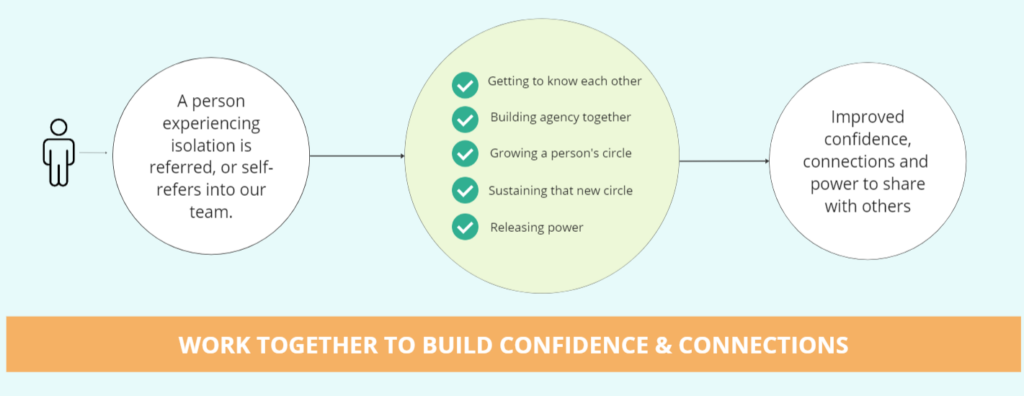
We won’t just be addressing the building of friendships; we’ll be working with people to understand the reasons they became isolated in the first place, and address them together. We believe that this approach of helping people build confidence and connections, will mean that the impact lasts beyond the programme duration, so people stay well in the longer term. We will test this approach by working with 100 people over the next 12 months, listening, learning, building evidence on what works, and iterating as we go.
Our Approach
We are working with people with lived experience, community groups, health and care partners and several VCSE delivery partners throughout the 12 month pilot to test and iterate our approach which includes:
- to build trusting relationships with people
- to work together to understand the factors that have led to residents becoming isolated, and find ways to address these
- to work together to overcome immediate barriers that people face to forming relationships
- to work together to find the right places and people that help people feel a sense of belonging
The approach will be bespoke to every person we work with, with decisions about what is next or best being made within that relationship. Our method will be to bring delivery partners together in regular routines, openly sharing evidence and learning about what is and isn’t working, and rapidly iterating what we do throughout.
This is a learning project; we come to it having collectively designed how we will work, but with the flexibility to frame ‘what we will do’ around each person that we meet.
Participant Stories
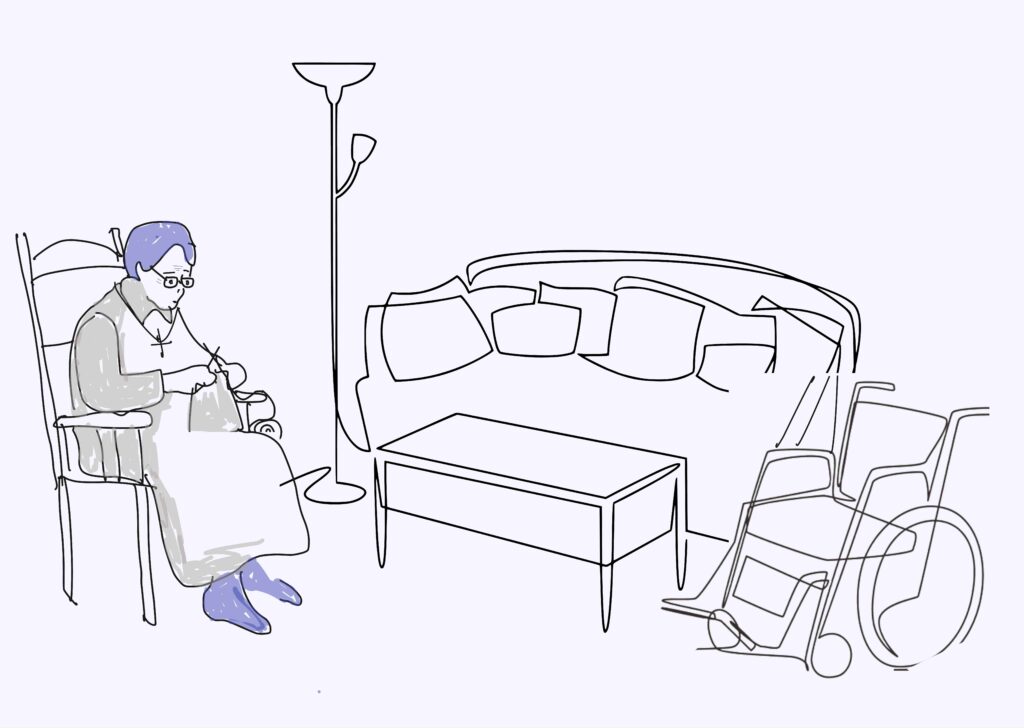
Understanding people’s individual stories in order to develop a personalised approach to help people with their recovery is key to success.
Tell us what you think
Since July, the Connect team has been coming together every week to reflect on the kinds of environments and ways of working that can help spark connections more organically in Barking and Dagenham. In late September, we came together for a morning of lively discussion in the Independent Living Agency offices to agree our biggest insights so far. We’re sharing those here, on behalf of the BD Collective. We’d love your help to make sense of what we’re learning. Please take a read of our insights, some live questions we’re wrestling with, and some things we want to experiment with ahead. We invite you to offer your reflections and questions along with any suggestions on what we should do next to shape a positive environment for connection in Barking and Dagenham.
We want to share our learning with other places and continue to learn from those experiencing feelings of loneliness or isolation. If you live or work in Barking & Dagenham and want to help or learn more about our programme of work, email us at theteam@carecity.org
Read more
Emily Brook’s blog “Building the space for friendship in Barking & Dagenham” reflects on our aim of creating societies that have more space for people to care about each other.
James Sinclair’s blog “Building a community system resilience model to tackle social isolation” looks at what we can do about social isolation when a lack of social connections seems such a societally embedded problem.
Sarah Trott’s blog “Design Thinking, Journey Mapping, Prototyping. Project reflections from our intern” shares her project reflections & some of the tools she created to capture, learn from and share the lived experience of project participants.

